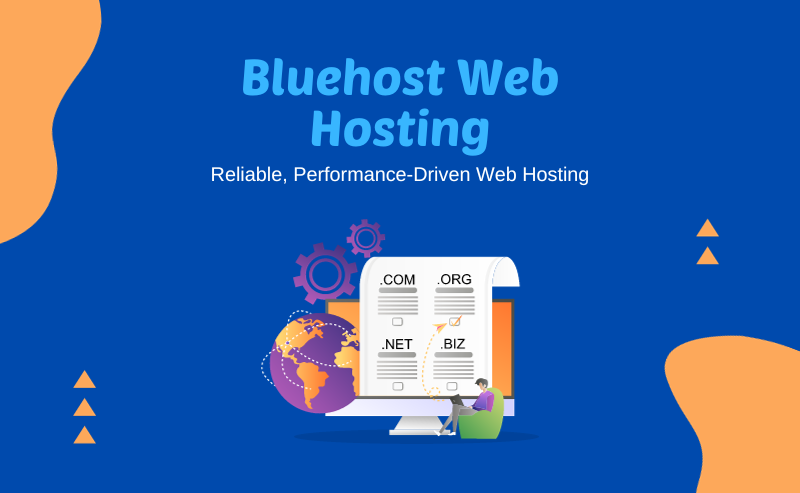Bootstrap vs WordPress: Different purposes in website design. Bootstrap is a front-end framework that comes with pre-designed templates for responsive websites. On the other hand, WordPress is a user-friendly content management system designed for non-technical users. While Bootstrap requires coding skills and experience with front-end development, WordPress offers a straightforward interface that does not require deep knowledge of coding.
Even though Bootstrap and WordPress can be combined for the development of a website, it is crucial to evaluate their respective advantages. WordPress offers excellent capabilities for content management, while Bootstrap allows for design control and flexibility. Both platforms enhance SEO by optimizing website structure, speed, and responsiveness of the website.
The choice between Bootstrap and WordPress for e-commerce functionality depends on the specific requirements. A WordPress website provides a variety of customizable templates for e-commerce sites as well as plugins and extensions for integration of payment gateways and management of products. On the other hand, Bootstrap offers more design control over e-commerce elements.
There are several hosting options to choose from, but A2 Hosting and Bluehost are recommended. Hosting providers such as these provide reliability, speed, and support, making them suitable for both beginners and professionals. It may be beneficial to switch to A2 Hosting or Bluehost if you are experiencing limitations or issues with your current hosting service.
As a result, choosing Bootstrap or WordPress depends on the individual’s skill level and requirements. Each platform has its own strengths and can effectively adapt to the development and design of websites.
Table of Contents
Bootstrap vs WordPress: What Are The Main Differences?
Bootstrap vs WordPress differs primarily in their functionality and purpose. Bootstrap is a front-end framework that includes pre-designed templates and components for developing responsive websites. Developers who want complete control over the design will find it ideal. WordPress is a content management system (CMS) that is user-friendly for non-technical individuals.
Bootstrap:
Front-end framework for responsive websites.
Provides pre-designed templates and components.
Ideal for developers who want full control over design.
Requires coding skills and knowledge of HTML, CSS, and JavaScript.
Offers more flexibility and customization options.
WordPress:
Content management system (CMS) for website creation.
User-friendly interface with a wide range of themes and plugins.
Geared towards non-technical users.
Does not require extensive coding knowledge.
Offers ready-made themes and plugins for easy customization.
As a result, Bootstrap is best suited to developers who prioritize design control, while WordPress is most appropriate for non-technical users who prioritize content management and usability. It is recommended that you consider Bluehost or A2 Hosting for hosting solutions that support either Bootstrap or WordPress.
Bootstrap vs WordPress: What’s the Learning Curve Like?
The learning curve for Bootstrap vs WordPress is different because they serve different purposes. Bootstrap is a front-end framework for building responsive websites, which requires familiarity with HTML, CSS, and JavaScript. The more you understand these fundamentals, the easier it will be to build websites using Bootstrap.
However, WordPress is a content management system that allows users to create and manage websites without any coding skills. Users with varying levels of technical expertise will find it easy to use, as it offers pre-built themes and plugins.
You should consider your specific needs and skill set when selecting between Bootstrap and WordPress. Bootstrap may be a better choice if you have experience with coding and desire more customization and control. On the other hand, if you prefer simplicity and ease of use, WordPress offers a quicker way to create a website. If you want to make a well-informed decision, consider other factors like hosting options.
Bootstrap vs WordPress: Can They Be Combined to Create a Website?
You can absolutely use Bootstrap and WordPress together to create your website. A widely used framework, Bootstrap, provides a responsive grid system and pre-designed components, while WordPress is a user-friendly content management system (CMS) that makes it easy to create and manage your website content.
You can benefit from the flexibility and customization options provided by both Bootstrap and WordPress when they are combined. You can use Bootstrap to make your WordPress site visually appealing and responsive, ensuring that it will look great across multiple devices and screen sizes. Bootstrap’s grid system helps you create a responsive layout, while the components improve the user experience.
Bootstrap can be integrated with WordPress in two ways. Either you can create a custom theme entirely using Bootstrap as a framework for your design, or you can begin with a ready-made Bootstrap-based WordPress theme. You can choose from many Bootstrap-based themes to save time and effort in designing your website. You can also easily integrate Bootstrap components into your WordPress site using plugins designed specifically for that purpose.
Using Bootstrap and WordPress together can be a powerful combination, but other factors, such as hosting solutions, should also be taken into consideration. Hosting providers such as Bluehost and A2 Hosting offer WordPress-optimized environments, which ensure fast loading times and reliable performance. You should consider these hosting options in order to further enhance your website’s overall functionality and performance.
Bootstrap vs WordPress: Which Is Better for SEO Purposes?
In terms of SEO, Bootstrap vs WordPress each offer its own strengths and weaknesses. With Bootstrap, you can create responsive and mobile-friendly websites, while WordPress is a content management system (CMS) that offers a wide variety of features for managing and developing websites.
There are several advantages to using WordPress for search engine optimization. As a result of its well-structured code, it is easily readable by search engines, making it more SEO-friendly. Additionally, WordPress offers a variety of SEO plugins, such as Yoast SEO, which can help you optimize your website for search engine results. You can significantly improve your website’s visibility on search engine result pages (SERPs) by using these plugins, which provide features such as XML sitemaps, meta tags, and keyword optimization.
Bootstrap, on the other hand, is a lightweight framework designed to create attractive and user-friendly websites. Although it does not have the same level of built-in SEO features as WordPress, it can still be optimized for search engines by following best practices, such as using relevant meta tags, optimizing images, and ensuring the website is fast and mobile-friendly.
You should choose Bootstrap or WordPress based on your specific needs and priorities. WordPress may be the better choice for you if you are seeking flexibility, customization, and a wide range of SEO plugins. However, if you value simplicity, lightweight code, and a strong focus on design, Bootstrap might be a good choice for you.
Bootstrap vs WordPress: Which One Is Better Suited for E-Commerce?
Bootstrap vs WordPress: both provide robust e-commerce functionality.
Bootstrap is a front-end framework that provides a solid platform for building mobile-friendly and responsive websites. As it offers a wide variety of customizable components and templates, it is ideal for visually attractive e-commerce websites. However, it does not include built-in e-commerce functionality, so you will need to integrate third-party plugins or develop your own solution.
On the other hand, WordPress is a flexible content management system (CMS) that is used by the majority of e-commerce websites. It offers several e-commerce plugins, including WooCommerce, which provide a variety of features for online stores. These features include inventory management, payment gateways, and product listings. Moreover, WordPress has a strong community and detailed documentation, which makes it easier to find resources and support for your e-commerce project.
If you are deciding which option is best suited for your e-commerce functionality, you should consider your specific requirements. Bootstrap can be a good option if design flexibility and customization are important to you. It may, however, be more appropriate for you to use WordPress with e-commerce plugins like WooCommerce if you would like a more comprehensive and user-friendly e-commerce solution.
Bootstrap vs WordPress: How Do Their Prices Compare?
In comparing the pricing of Bootstrap vs WordPress, it is important to keep in mind that these platforms have different features.
You can choose from a variety of WordPress plans, ranging from free to premium tiers, with the costs increasing as you add custom themes and plugins, and hosting services. You can find more information about WordPress pricing here
Bootstrap, on the other hand, is a free and open-source toolkit for developing HTML, CSS, and JS. There are, however, additional costs associated with incorporating Bootstrap into a WordPress theme or purchasing premium Bootstrap templates and themes. Find out more about Bootstrap pricing here
As you evaluate prices, you should not only consider the initial costs, but also the potential expenses for customization, maintenance, and support.
In terms of pricing, every platform operates differently and may be designed for different audiences, depending on the scale and complexity of the website being created.
Bootstrap vs WordPress: Which Should You Choose for Your Website Development?
Bootstrap vs WordPress: each offers unique advantages for website development. WordPress simplifies content management and offers a wide variety of themes and plugins for easy website creation, while Bootstrap provides responsive designs with more customization options. WordPress has an advantage when it comes to e-commerce functionality thanks to plugins like WooCommerce.
You should select the option that best meets your technical skill level, design preferences, and project-specific requirements. In order to ensure a smooth and efficient website experience, consider performance-centric hosting solutions such as A2 Hosting and Bluehost. When you correctly use the strengths of either platform, you will be able to create an effective, attractive, and user-friendly website.

